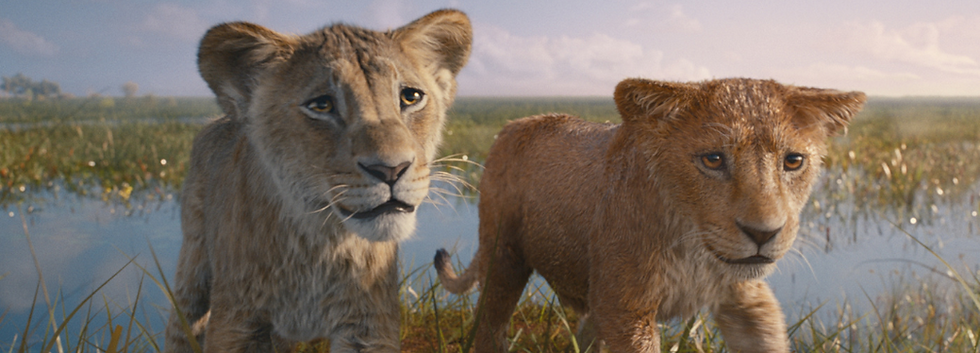Mufasa: The Lion King is a terrible sequel, a half-decent prequel, and a continuation of the failed excuse for the flawed existence of this version of the iconic story of the animal kingdom. Those may be harsh words to fling at a children’s film, but that’s what the property deserves when it trades its soul and respectably for cash. And that’s not even considering the fact that Barry Jenkins, writer/director of such foundational films of this era as the Best Picture-winning Moonlight and If Beale Street Could Talk, got roped into this, years of his finite career gone for nothing more than a commercial for merchandise and theme park attractions.
Of course, it’s wrong of me to sit here and armchair theorize about the reasons for Jenkins’ position as the film’s director. This is a free market after all, and the pitfalls of the film industry have been made so clear since its inception that it would be foolish to judge someone for accepting work on the biggest stage. And there’s no denying that Disney hired the best possible candidate for the job, a visionary whose presence at the helm was the sole reason I ventured back into this photorealistic version of Africa.
Neither party comes out of this project having harnessed their full potential. Jenkins, a filmmaker with a masterful understanding of quiet observation, finds himself saddled with a story that always feels the need to be loud to resonate with audiences, specifically the younger ones. Case in point: the entire sequel subplot that is the shell to the nut of this story. Donald Glover and Beyoncé reprise their roles as Simba and Nala, respectively. Well, “reprise” would be a strong word considering the latter speaks less than ten words, shifting the focus of the future onto the lioness princess Kiara (Blue Ivy Carter). While Mom and Dad are away, she hears the origin story of her grandfather Mufasa from Rafiki… with some additional thoughts by Timon and Pumbaa.
Between the strain of removing Simba and Nala as quickly as possible and the constantly unfunny gag of Timon and Pumbaa’s fourth-wall-breaking interjections, this section is ripe for removal, or, at the very least, fast-forwarding once this lands on Disney+. It would certainly help trim the fat off this 120-minute beast and maintain the dramatic heft of the prequel storyline. The past finds Mufasa as a lost cub, taken in by another pride of lions and given a brother named Taka, heir to the throne. The story of Moses and Rameses continues from there, with a great journey forcing Mufasa to face his destiny as king despite his hesitancy to ascend past his adopted brother.
A few members of Jenkin’s usual crew came with him for this blockbuster. Cinematographer James Laxton finds more life in both the vast landscapes and the faces of his feline subjects. The hyperrealism of the visual effects has been slightly toned down, lessening (but not eliminating) the nagginess of the uncanny valley. Dave Metzger’s music backs up a race sequence between Mufasa and Taka that finds the magic and power of the original film, the cubs sprinting through the grass and ascending jagged rocks and trees. The music cedes itself to cues from Zimmer’s original track from there on out, a crutch to rekindle those nostalgic feelings.

Wholly original are the lyrical songs by Lin-Manuel Miranda, although none reach the exceedingly high bar that the famed multi-hyphenate songwriter has set for himself. Adding insult to injury is their placement within the story, many shoe-horned at the worst possible moment. Did we really need a chintzy tune about how evil the main villain (Mads Mikkelsen) is right before he murders a peaceful pride of lions?
All of these less-than-ideal elements make it seem as if we’re settling. We already did a near-perfect version of this story thirty years ago (and subsequent variations of it on VHS) with a quarter of the runtime, so what could possibly be accomplished now? If someone like Jenkins can’t find that much-needed spark, then it truly is time to throw in the towel.
